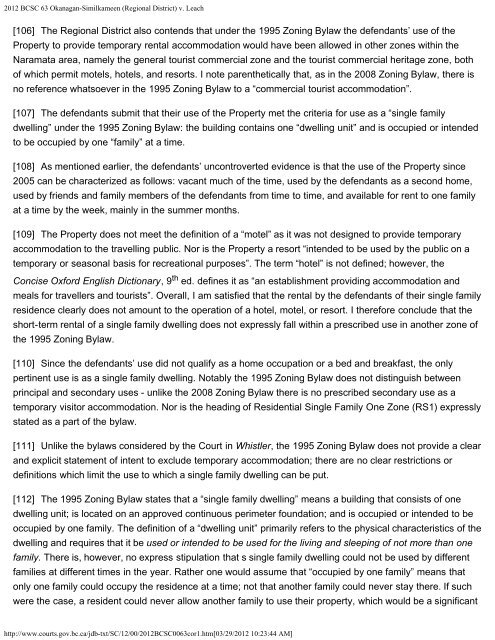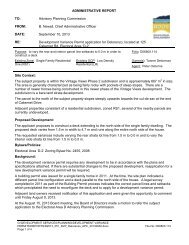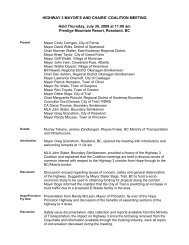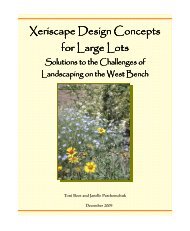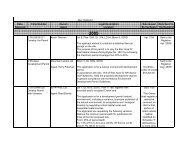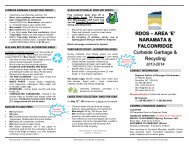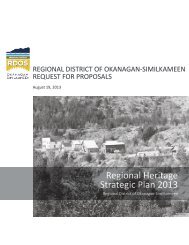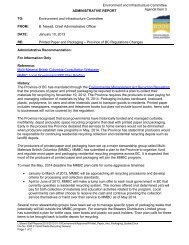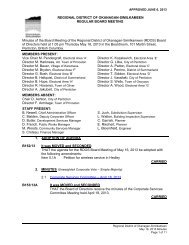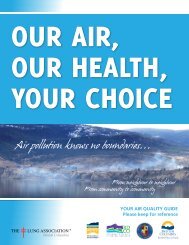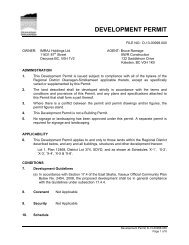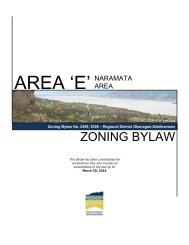Okanagan-Similkameen (Regional District) v ... - Rdosmaps.bc.ca
Okanagan-Similkameen (Regional District) v ... - Rdosmaps.bc.ca
Okanagan-Similkameen (Regional District) v ... - Rdosmaps.bc.ca
You also want an ePaper? Increase the reach of your titles
YUMPU automatically turns print PDFs into web optimized ePapers that Google loves.
2012 BCSC 63 <strong>Okanagan</strong>-<strong>Similkameen</strong> (<strong>Regional</strong> <strong>District</strong>) v. Leach<br />
[106] The <strong>Regional</strong> <strong>District</strong> also contends that under the 1995 Zoning Bylaw the defendants’ use of the<br />
Property to provide temporary rental accommodation would have been allowed in other zones within the<br />
Naramata area, namely the general tourist commercial zone and the tourist commercial heritage zone, both<br />
of which permit motels, hotels, and resorts. I note parentheti<strong>ca</strong>lly that, as in the 2008 Zoning Bylaw, there is<br />
no reference whatsoever in the 1995 Zoning Bylaw to a “commercial tourist accommodation”.<br />
[107] The defendants submit that their use of the Property met the criteria for use as a “single family<br />
dwelling” under the 1995 Zoning Bylaw: the building contains one “dwelling unit” and is occupied or intended<br />
to be occupied by one “family” at a time.<br />
[108] As mentioned earlier, the defendants’ uncontroverted evidence is that the use of the Property since<br />
2005 <strong>ca</strong>n be characterized as follows: va<strong>ca</strong>nt much of the time, used by the defendants as a second home,<br />
used by friends and family members of the defendants from time to time, and available for rent to one family<br />
at a time by the week, mainly in the summer months.<br />
[109] The Property does not meet the definition of a “motel” as it was not designed to provide temporary<br />
accommodation to the travelling public. Nor is the Property a resort “intended to be used by the public on a<br />
temporary or seasonal basis for recreational purposes”. The term “hotel” is not defined; however, the<br />
Concise Oxford English Dictionary, 9 th ed. defines it as “an establishment providing accommodation and<br />
meals for travellers and tourists”. Overall, I am satisfied that the rental by the defendants of their single family<br />
residence clearly does not amount to the operation of a hotel, motel, or resort. I therefore conclude that the<br />
short-term rental of a single family dwelling does not expressly fall within a prescribed use in another zone of<br />
the 1995 Zoning Bylaw.<br />
[110] Since the defendants’ use did not qualify as a home occupation or a bed and breakfast, the only<br />
pertinent use is as a single family dwelling. Notably the 1995 Zoning Bylaw does not distinguish between<br />
principal and secondary uses - unlike the 2008 Zoning Bylaw there is no prescribed secondary use as a<br />
temporary visitor accommodation. Nor is the heading of Residential Single Family One Zone (RS1) expressly<br />
stated as a part of the bylaw.<br />
[111] Unlike the bylaws considered by the Court in Whistler, the 1995 Zoning Bylaw does not provide a clear<br />
and explicit statement of intent to exclude temporary accommodation; there are no clear restrictions or<br />
definitions which limit the use to which a single family dwelling <strong>ca</strong>n be put.<br />
[112] The 1995 Zoning Bylaw states that a “single family dwelling” means a building that consists of one<br />
dwelling unit; is lo<strong>ca</strong>ted on an approved continuous perimeter foundation; and is occupied or intended to be<br />
occupied by one family. The definition of a “dwelling unit” primarily refers to the physi<strong>ca</strong>l characteristics of the<br />
dwelling and requires that it be used or intended to be used for the living and sleeping of not more than one<br />
family. There is, however, no express stipulation that s single family dwelling could not be used by different<br />
families at different times in the year. Rather one would assume that “occupied by one family” means that<br />
only one family could occupy the residence at a time; not that another family could never stay there. If such<br />
were the <strong>ca</strong>se, a resident could never allow another family to use their property, which would be a signifi<strong>ca</strong>nt<br />
http://www.courts.gov.<strong>bc</strong>.<strong>ca</strong>/jdb-txt/SC/12/00/2012BCSC0063cor1.htm[03/29/2012 10:23:44 AM]


